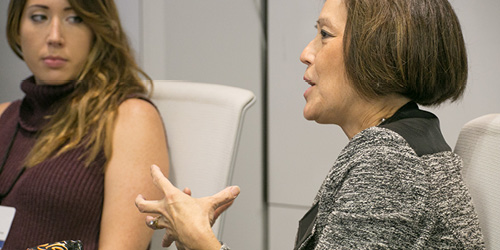In the report, we provide the findings of our 2022 global survey into how the HR function continues to evolve to support new business demands in highly volatile conditions.[1]
Our previous survey in 2020, at the start of the global pandemic, showed that the next phase of HR transformation is “fluid HR”, where the function is sweeping aside rigid legacy structures to work in more flexible and customer-centric ways to solve urgent business needs. HR functions working in this way proved their value during the pandemic by minimizing business disruption through mobilizing thousands of employees to first work from home and then adapt to hybrid working. The latter option is now recognized as a vital tool for attracting and keeping skilled staff.
As the economic clouds darken over Europe and businesses confront the reality of recession, HR fluidity will become ever more important. The function must find new ways to support business agility and workforce resilience during 2023, while continuing to combat widespread labor and skills shortages.
Insights for What’s Ahead
- Adopting outcome-based metrics related to business performance—such as productivity, profitability, and labor/turnover costs—need to rise in importance as HR struggles to evaluate its own effectiveness and strategic impact. While the function is exploring new ways to work, it is unsure of the success of these initiatives. Although the majority say their HR strategies are effective or somewhat effective, confidence has gone down since our last survey, with a smaller share of respondents rating their HR operating strategy as highly effective. Measurement is limited to HR activity, not business impact. If HR wants to continue to evolve as a strategic partner to the business, it must urgently find new ways to measure its impact on different dimensions of business performance, especially those metrics that will be paramount during recession, such as productivity or workforce resilience.
- HR priorities need to be aligned more closely with those of the business to give HR greater credibility. Our research finds there are some concerning misalignments between business and HR priorities. Two blind spots appear to be HR’s role in supporting digital transformation and the transition to a sustainable business. If HR wants to remain relevant and act as a lead and not support function, it urgently needs to bring its expertise in cultural and organizational change to these significant business model transformations.
- The rapid speed of change required to deal with a disruptive business environment means continuous improvement and experimentation have replaced large scale HR transformation as an operating model. The experience of managing through COVID-19 has arguably helped the function become nimbler and more adaptive. HR leaders are prioritizing adopting new HR technology, working in flexible teams and projects, and experimenting with Agile for new ways of working. HR’s more experimentative and incremental approach to change could prove invaluable to HR leaders as their businesses brace for new waves of global disruption.
- A major challenge facing HR leaders is how to find the best balance between HR global efficiencies and local responsiveness. Like any other business function, HR must balance cost considerations with the growing demand from its internal customers for highly tailored and personalized solutions. The combination of recession and the need to retain talent in tight labor markets suggests that the balancing act between local and global will be harder than ever, requiring HR to partner with the C-suite to decide on some difficult trade-offs in the months ahead.
- The profile of HR leaders who can successfully meet the business demands of their organizations is changing. Survey responses paint a picture of a dynamic HR leader who is resilient and adaptable, skilled at change management, and capable of driving execution. However, the biggest block to change is the HR function itself, which is showing signs of burnout. HR leaders who can reenergize their own teams to drive through people related change could make a critical contribution to business agility in the turbulent period ahead.
- To move from a support function to a leading strategic function, HR needs to:
- Demonstrate its impact and contribution to business performance by adopting outcome-based metrics, such as profitability, productivity, and labor costs;
- Tighten alignment between business and HR strategic priorities;
- Build capability in two critical areas—helping build a digital-enabled business and providing sustainability leadership through “Green HR” policies, such as instilling sustainable values and behaviors among leaders and workers; and
- Consider making the case for a skills-based organization. HR has a vital role in building the case for change, developing an enterprise-wide language of skills, and organizing the function differently to place skills at the core of talent strategies.
[1] The survey was fielded in June 2022 and received 115 responses from HR professionals globally. Demographics are described at the end of the report.
















